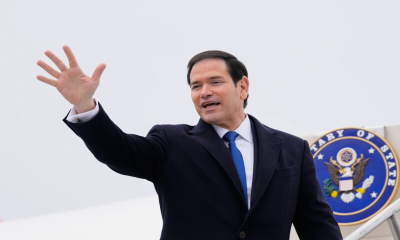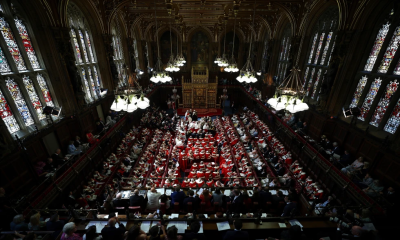Bangladesh`s LNG aspirations may face a backlash as the White House has paused a decision on whether to approve what would be the largest natural gas export terminal in the US, according to local energy experts.
As Bangladesh has become overly dependent on imported fuels, this could be a massive blow.
Experts are worried that the recent decision by the US to halt LNG plans could have long-term implications for in Bangladesh, given the 15-year agreement signed last year between the Bangladesh government and Excelerate Energy, a US-based company, to purchase LNG from 2026 to 2040.
As of mid-December 2023, sources said that the country had a shortage of more than 1500 million cubic feet of gas per day against the overall demand for 4000 MMCFD.
In late January, QatarEnergy and Excelerate Energy signed an agreement to supply LNG to Bangladesh.
As per the deal, Excelerate will purchase up to one million tonnes per annum (MTPA) of LNG from QatarEnergy to be delivered to floating storage and regasification units in Bangladesh for 15 years starting in January 2026, according to a press release.
Excelerate will purchase 0.85 MTPA of LNG in 2026 and 2027, and one MTPA from 2028 to 2040, it added.
Importing LNG at higher prices will eventually increase electricity expenses, so it is advisable to move away from this path immediately, said Dr. Khondaker Golam Moazzem, the research director at the Centre for Policy Dialogue (CPD).
“Right now, we are borrowing dollars to purchase LNG and that`s why the expenses are already high related to the market.
“The uncertainty surrounding the US decision about LNG-related projects could further increase the cost of our LNG imports for an extended period. "Therefore, it would be best to shift our focus away from gas-based electricity production and towards renewable energy as much as possible,” he said.
The ongoing dollar crisis has forced the Bangladesh government to cut its import of LNG from the international spot market by half, the UNB reported on December 14 last year.
Due to the rising demand for natural gas and its growing depletion, the government decided to import LNG in 2017.
In January, The New York Times reported that the Joe Biden administration is pausing a decision on approval of CP2 project, a delay that could stretch past the November election and spell trouble for that project and 16 other proposed terminals.
The $10bn project, known as Calcasieu Pass 2 (or CP2), is being planned for Cameron parish, on Louisiana’s coast. It would ship up to 24m tons of LNG each year once built. This project would cause 197m tons of planet-heating gases each year.
The White House is directing the US Energy Department to expand its evaluation of the CP2 project to consider its impact on climate change, as well as the economy and national security.
Energy market analysts, European Parliament members, and civil society organizations have applauded the decision to postpone the approval.
In letters addressed to President Biden and Secretary of Energy Jennifer Granholm, these groups express support for halting permitting to allow for a comprehensive assessment of the potential impacts on climate, environmental justice, and economics.
Despite assertions from US gas lobbyists regarding the necessity of expanding LNG exports for European and global energy security, energy market analysts dispute this claim. Plans for new LNG projects are deemed incompatible with European gas trends and pose financial risks to investors, as highlighted by experts from the Institute for Energy Economics and Financial Analysis (IEEFA).
European gas demand, having declined since the surge following Russia`s invasion of Ukraine, is projected to further decrease by 2030. This trend aligns with the European Union`s target to reduce oil and gas demand by 15% from 2022 levels by 2030, with continued decline through 2050. The potential construction of all proposed US LNG terminals could surpass the entire gas demand of the EU by 2030, according to IEEFA, further highlighting the misalignment with European energy goals.
Additionally, the pursuit of new LNG projects conflicts with the objectives outlined in the Paris Agreement, and concerns are raised regarding the high risk of human rights abuses associated with LNG supply chains.
Members of the European Parliament and over 40 civil society organizations, organized by Food and Water Action Europe and Friends of the Earth Europe with support from activist Andy Gheorgiu, are urging the Biden administration to reconsider LNG export plant approvals.
These January letters underscore the necessity for the US administration to acknowledge the significant changes in the energy landscape since 2022, including the rise of renewable energy sources, efficiency measures, and declining gas demand in Europe.
The delay in approving this decision also holds ramifications for Bangladesh over time, given the expensive nature of LNG as a resource and the US is an existing investor in LNG plant expansion in Bangladesh. The uncertainty arising from financial and investor apprehensions could influence the trajectory of our energy sector.
In this position, experts in Bangladesh suggest prioritizing and shifting focus more to renewable energy.
If the US chooses to delay or suspend CP2 and other projects associated with LNG due to environmental and economic concerns, it indicates a setback for LNG expansion. This shift could prompt investors to reevaluate their interests, potentially leading them to reassess their participation in current projects.
Furthermore, this uncertainty could further strain the global LNG supply chain, potentially leading to higher prices.
Last year, the US became the world’s biggest exporter of LNG, with current exported volumes expected to at least double by the end of the decade.
Excelerate first opened the Bangladesh market to LNG in 2018 with the development of its integrated Moheshkhali LNG floating storage and regasification unit terminal.
In the years, the company deployed a second FSRU terminal to the Bay of Bengal and has utilised its infrastructure position to win spot LNG cargoes sales into Bangladesh.
Excelerate’s two FSRUs in Bangladesh deliver approximately 25 per cent of the country’s natural gas supply.


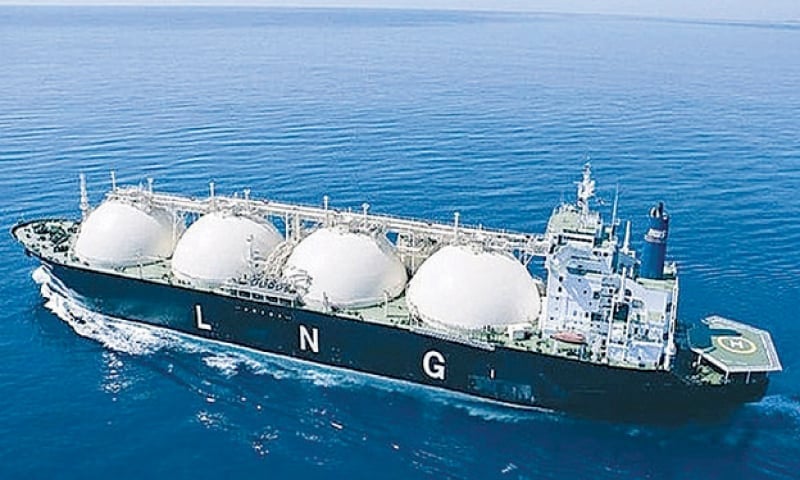



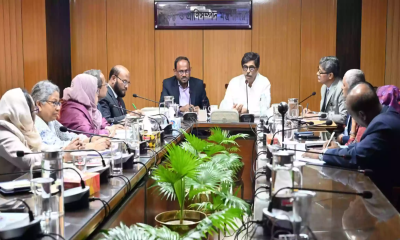

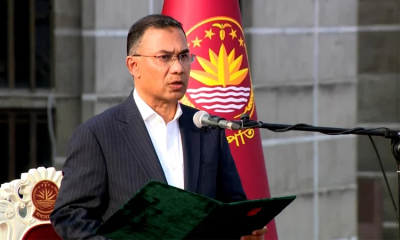

-20260219110716.webp)
-20260219054530.webp)

